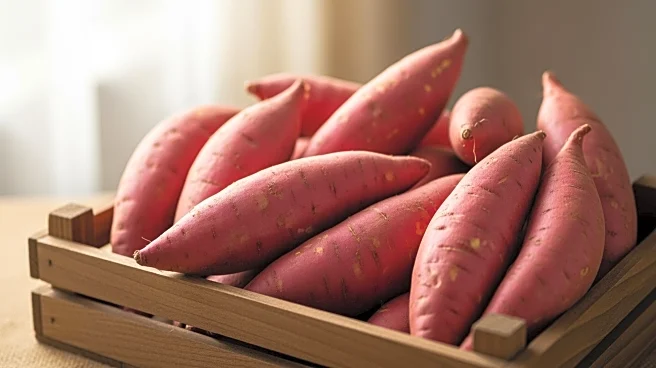What's Happening?
China has emerged as the dominant force in global sweet potato production, contributing over 50 million tons annually, which accounts for approximately 55% of the world's output. This production is largely consumed domestically, supporting various industries
such as starch, alcohol, and animal feed. Sweet potatoes are cultivated extensively across several Chinese provinces, integrating deeply into local rural economies. The United States also plays a significant role in sweet potato production, with North Carolina leading the national output. American varieties like Jewel and Beauregard are popular for their use in purees and bakery products.
Why It's Important?
China's dominance in sweet potato production underscores its significant role in global agricultural markets. The crop's adaptability and nutritional value make it a crucial component of food security strategies worldwide. As demand for sustainable and nutrient-rich crops grows, sweet potatoes are increasingly valued for their contribution to health and agriculture. The U.S. market, while smaller, remains vital for domestic consumption, with production concentrated in key states. This dynamic highlights the importance of sweet potatoes in both local and international food systems, influencing trade and agricultural policies.
Beyond the Headlines
The prominence of sweet potatoes in global agriculture reflects broader trends towards sustainable farming and food security. As countries seek to diversify their agricultural outputs, crops like sweet potatoes offer resilience against climate change and economic fluctuations. The focus on uniform size and quality for retail and processing markets also points to evolving consumer preferences and industry standards. This shift may encourage further research and development in crop varieties and cultivation techniques, enhancing the role of sweet potatoes in global food systems.


















